Encompassing the entire procurement cycle, achieving the Level 4 Apprenticeship in Procurement and Supply will enable an individual to use their breadth and depth of experience to position themselves as a commercially skilled professional with transferable skills and career options that span the public, private and charitable sectors. This will be supported by the attainment of a Level 4 Diploma with the Chartered Institute of Procurement & Supply (CIPS).
Level 4 Apprenticeship duration:
Full time Level 4 apprentices will typically spend 18 months on-programme (before the gateway) working towards the occupational standard, with an average of 6 hours per week off-the-job training. All apprentices must spend a minimum of 12 months on-programme.
Funding required:
£9,000. Funding pays for Course Fees, Exam Fees, End Point Assessment and reviews and coaching.
Level 4 Apprenticeship Overview
Roadmap
Year One

At the start the apprentice will complete enrolment, induction and initial assessment including setting objectives and a timeline for the apprenticeship.

Students will study the CIPS Level 4 Diploma in Procurement and Supply and complete their examinations. Click here to view the CIPS Level 4 course.

There is one progress review every three months. Both the apprentice and line manager will need to be present for these.
Roadmap
Year Two

The student will need to complete an End Point Assessment), consisting of a 5000 word project report and presentation.

The student will then be assessed and awarded a grade of distinction, pass or fail.
End Point Assessment (EPA)
The EPA period should only start, and the EPA be arranged, once the employer is satisfied that the apprentice is deemed to be consistently working at or above the level set out in the occupational standard, all of the pre-requisite gateway requirements for EPA have been met.
EPA must be conducted by an organisation approved to offer services against this standard, as selected by the employer, from the Education & Skills Funding Agency’s Register of End Point Assessment Organisations. The EPA consists of 2 distinct assessment methods:
Performance in the EPA will determine the apprenticeship grade of fail, pass or distinction.
Download our brochures for information and pricing

Knowledge
Skills
Behaviours
Entry Requirements:
Apprentices must hold GCSEs in English and Maths prior to taking the End-Point Assessment.
Enquire Now!
There has never been a better time to learn.
